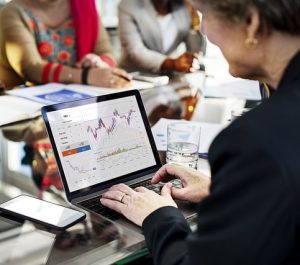What is Consumer Data and Why Do Businesses Need It?
Businesses that deal with consumer data have become major players in the digital world we live in. By analyzing data, companies around the world are learning how to improve their businesses and how to provide better services to their customers. This is where consumer data plays a major role. For example, companies that deal with online betting and bonus codes like
Wink Bingo promo code analyze their user data constantly to offer them what they want. In essence, all personal, behavioral, and other forms of data can be considered consumer data used by marketing companies to formulate specific marketing campaigns that target the audience which will probably have an interest in them.

Your activity online is marked by many types of trackers that follow what kind of websites you visit, what type of merchandise you buy, etc. That consumer data is collected and later processed by customer data analytics. This process helps the companies devise a profitable marketing strategy that will, through carefully placed ads and other forms of customer targeting, offer you their products and services.
The application of data in this matter is so great that the data market has become a lucrative business platform on a grand scale. In this article, we will deal with the manner companies do it and with more broader reasons for it. Read on!
How Do Businesses Collect Consumer Data?
The manner businesses collect consumer data is a diverse field of advanced software and technology that has reached remarkable heights. If you have ever wondered how social networks show ads for the type of product you wanted to buy and made you feel like someone had been reading your mind, don’t fret, you have experienced the power of consumer data. Your behavior online is tracked by different sorts of tools that represent both direct and indirect methods.

The direct methods usually include online surveys where you will be asked questions on your shopping preferences and what you like or dislike about particular goods and retailers. More inconspicuous ways of tracking your activity are done through sophisticated software from websites you visit and different social networks. Another exciting example of collecting data is more location based. Data from your IP address is gathered and processed in order to build a more personal profile and offer contents that are relevant on a local level, rather than general.
How Do Businesses Process Consumer Data?
As companies require vast amounts of data to try and predict your shopping behavior and lifestyle, there is no way any manual form of data processing can be employed. Sophisticated AI-powered software and programs are in charge of segmentation of data and filtering the relevant bits from the irrelevant ones. The programs work non-stop and can flag any malfunctions that might deter the marketing companies from making a successful campaign.
What Do Businesses Do With Consumer Data?

The collected data goes through analytical systems and is then used to provide a better user experience. This strategy is responsible for serving you with the kind of content you are looking for and will help you make decisions that usually have to do with buying goods and services. The lifestyle and preferences are unique, and so is the content served, as is particularly tailored to suit you. Also, we mentioned that consumer data is growing into a market on its own. Companies can sell data to the third parties and thus use that data to secure their additional revenue.
Conclusion
Despite the growing concerns of cybersecurity and the response to data collection and management systems by EU’s GDPR that sets clear rules of what is allowed and what is not, consumer data is going to continue to be an essential factor for business and can help us get to the things we are looking for.

